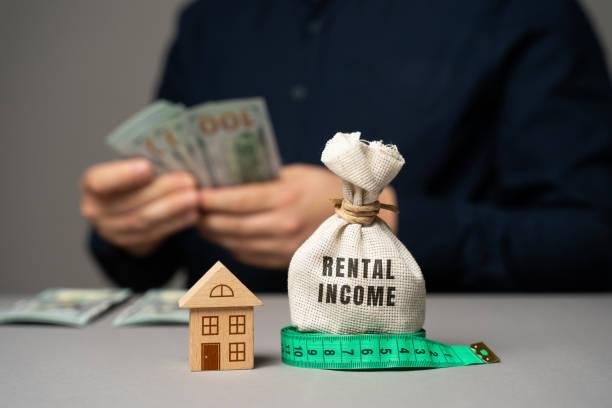Essential Guide to CRA Rental Income 2024

Understanding how the CRA rental income regulations work is vital for Canadian landlords in 2024. With more people turning to rental properties as a secondary income source, the Canada Revenue Agency (CRA) is focusing more attention on compliance, accurate reporting, and allowable deductions. Whether you're new to renting or have years of experience as a property owner, knowing what to expect this year can help you avoid penalties and maximize your tax benefits.
What is CRA Rental Income?
Rental income refers to the money you receive from renting out a property. This includes houses, apartments, condos, and even individual rooms. According to the CRA, rental income must be reported on your tax return, regardless of whether it is from a short-term rental or a long-term lease.
In 2024, the CRA continues to emphasize the importance of accurate recordkeeping, proper deduction claims, and timely reporting. Not complying can result in audits, penalties, or even reassessments.
What Counts as Rental Income?
CRA rental income includes:
- Monthly rent payments
- Security deposits kept as rent
- Additional charges (parking, utilities, etc.)
If you rent a portion of your home (e.g., basement suite), you must also report that income, even if you're living in the same property.
Reporting CRA Rental Income
You must report all rental income using Form T776: Statement of Real Estate Rentals. This form allows you to:
- Record gross rental income
- List allowable expenses
- Calculate net rental income or loss
This amount is then included on your T1 General Income Tax Return. It’s crucial to keep supporting documentation such as lease agreements, utility bills, and receipts for repairs and maintenance.
Common Deductions You Can Claim
Claiming legitimate deductions can reduce your taxable income and help you keep more of your hard-earned money. Here are some common deductions accepted by the CRA in 2024:
- Mortgage interest (only the interest portion, not the principal)
- Property taxes
- Insurance premiums
- Utilities (if you pay them)
- Repairs and maintenance (e.g., fixing a leaky roof, replacing flooring)
- Property management fees
- Advertising costs to attract tenants
- Accounting/legal fees related to your rental
Note: Capital expenses (e.g., adding a new room or installing central air) must be depreciated over time and cannot be claimed in full in one year.
What’s New in 2024?
For 2024, the CRA has enhanced its tools and tracking systems to better detect unreported rental income. Digital platforms like Airbnb and Vrbo are now required to share income data with the CRA. As a result, even short-term rental hosts must be vigilant in reporting income correctly.
Additionally, the CRA has improved its audit processes. If there's a discrepancy between what’s reported and what’s collected (e.g., bank deposits that don’t align with declared rental income), you may be flagged for review.
Principal Residence Exemption Considerations
Some landlords rent part of their principal residence. While this may not affect your principal residence exemption for capital gains, the CRA may consider part of your home as a rental property if:
- Structural changes are made for rental use
- You claim depreciation (CCA)
These changes could reduce or eliminate your exemption when selling the property. Always consult a tax professional before making such decisions.
Recordkeeping Tips
The CRA advises landlords to keep records for at least six years after the end of the tax year. Records should include:
- Lease/rental agreements
- Receipts for repairs, advertising, legal fees
- Mortgage statements
- Utility bills
- Bank statements showing rental deposits
Digital copies are acceptable, provided they’re easily retrievable and legible.
What Happens if You Don’t Report Rental Income?
Failing to report rental income can result in:
- Reassessment of your taxes
- Penalties of up to 50% of unreported income
- Interest on overdue taxes
- Potential audits for previous years
It’s far better to report all income accurately and take full advantage of allowed deductions than to risk facing CRA penalties.
Filing as an Individual or Corporation
If you’re renting out property under your name, report income as an individual on your personal return. However, if you operate several properties or run a rental business, you might consider incorporating. While this has tax advantages, it also involves added complexity and costs. Consulting with a tax expert is advisable before making this decision.
When to Hire a Professional
Managing CRA rental income is not always straightforward. If you:
- Own multiple properties
- Operate short-term rentals
- Are uncertain about allowable deductions
- Have received a CRA review notice
…then hiring a tax professional is highly recommended. They can help you navigate compliance, save money, and reduce stress during tax season.
Conclusion
Navigating the complexities of CRA rental income in 2024 requires a proactive and informed approach. From accurate reporting to maximizing deductions and avoiding costly mistakes, staying on top of your obligations ensures long-term financial health and peace of mind.
If you need expert assistance with rental income taxes, TaxHeadaches.ca is here to help. Our team specializes in simplifying tax challenges for landlords and property owners across Canada. Let us take the headaches out of your tax season.





